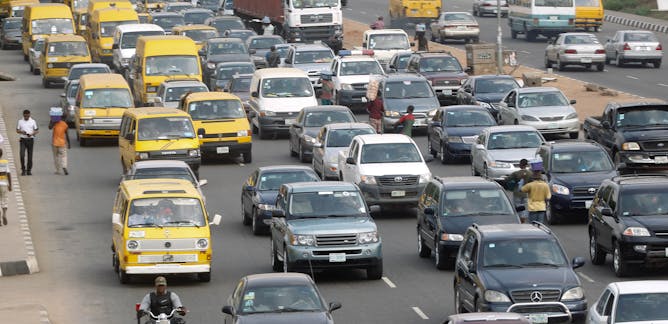|
Africa’s rising wave of urbanisation includes a large number of people who are older than 60. But new urban infrastructure in Africa’s largest city, Lagos, ignores the needs of this vulnerable population, writes Ojo Melvin Ogunbiade.
Smartphones have become ubiquitous in most parts of the world. You're probably reading this newsletter on yours right now. But the devices carry a heavy environmental cost, as Patrick Byrne and Karen Hudson-Edwards explain.
|
Top Stories
|

Ojo Melvin Agunbiade, African Population and Health Research Center
Old people in Nigeria's cities can't even rely on public transport.
| |

Patrick Byrne, Liverpool John Moores University; Karen Hudson-Edwards, University of Exeter
It's not easy to get all those metals out of the ground.
|

David B. Moore, University of Johannesburg
Zimbabwe's new president promised to deliver the country citizens want but the nation remains on edge.
| |

Yenny Tjoe, Griffith University
Indonesia under President Joko Widodo seems to be on the right track in reducing inequality.
|
|
|
Arts + Culture
|
-
J. Vijay Maharaj, The University of the West Indies: St. Augustine Campus
Author V.S. Naipaul, who died on Aug. 11, both scorned and mirrored his Caribbean origins. At the University of the West Indies, students must reconcile this conflicted titan's literary legacy.
|
|
Health + Medicine
|
-
Sarah Linnstaedt, University of North Carolina at Chapel Hill
Did you know that trauma, even when there is no tissue or nerve damage, can cause chronic pain? Exactly how much pain and who is most vulnerable depends on which 'stress genes' we carry.
|
|
Science + Technology
|
-
Magdalena Zawisza, Anglia Ruskin University
Whether it is racism, sexism or ageism, most of us face prejudice in some domain. And it turns out that damaging stereotypes can significantly affect our intellectual abilities.
|
|